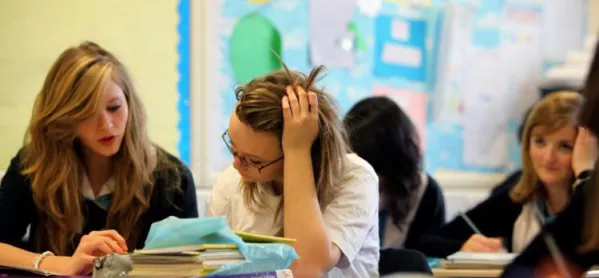The Department for Education has been considering rowing back on plans to require nine in 10 students to sit GCSEs in the core academic subjects that make up the English Baccalaureate (EBacc), TES understands.
A consultation, which closed in January last year, set out a goal for 90 per cent of pupils to be studying EBacc subjects - English, mathematics, history or geography, the sciences and a language - by 2020.
But TES understands that there have been moves within the DfE to change the original target, which has been opposed by many headteachers, partly because of a dearth of specialist subject teachers.
Sources say one option considered is to introducing an easier target for a lower percentage of pupils in 2020 and then shifting the 90 per cent goal to a much later date.
“[They’ll] come up with a sort of plausible trajectory but as ever with these things they’re just ignored because they don’t have any bite,” a source said. “The only thing that will have bite is the 2020 target.”
But according to sources calls for the EBacc to be broadened to include more technical subjects have been rejected.
The DfE has previously said that the long overdue announcement on the consultation result is expected in “due course” - some had suggested this could be as late as summer. But details of what is being considered have already begun leaking out.
Campaigners have been calling for the EBacc to include creative and technical subjects as they claim the current measure is too narrow. And last month, Neil Carmichael, chair of the Education Select Committee, came out in support of proposals for expanding the EBacc to include more skills.
But TES understands that ministers are unlikely to change subjects in the EBacc despite the criticism. Instead, they are considering watering down the 2020 target because of the shortage of language teachers.
“There are going to be loads of kids who get four subjects but can’t get the fifth,” the source added. “It seems silly to haul schools over the coals for something they literally cannot get enough teachers and kids to make happen.”
Ministers had already, in 2015, watered down the Conservatives’ original pledge to make the EBacc compulsory for all.
Education secretary Justine Greening will address secondary headteachers at ASCL’s annual conference in Birmingham tomorrow - and there has been speculation that she could use her appearance to make an announcement on the EBacc.
Duncan Baldwin, deputy director of policy at ASCL, said: “It is an obvious time to say certain things and if she doesn’t say it then somebody will be asking her about it I am pretty sure.”
He added: “It makes perfect sense to reduce [the target for 2020]. And indeed the climate in which we are working, with teacher recruitment and funding and so on, makes that ambition even less.
“So changing the aspiration, or at least changing the timescale of the aspiration, is a very sensible move - if they are going to do it.”
If an interim target is introduced for 2020 then Russell Hobby, NAHT general secretary, acknowledged that it showed recognition of the “significant problem” with the 90 per cent target.
But he added: “Ultimately that just puts off the problem. Any hard and fast target around the number of pupils studying the EBacc is the wrong thing to do. It’s just too crude a tool.”
A DfE spokesperson said: “The EBacc is a key part of our drive to extend opportunity for all and is already helping children, particularly those from disadvantaged backgrounds, to benefit from a rigorous education.
“We expect all schools to offer options in addition to the EBacc, so that pupils have the opportunity to study subjects that reflect their own individual interests and strengths. We will respond to our consultation on the EBacc in due course.”
Want to keep up with the latest education news and opinion? Follow TES on Twitter and like TES on Facebook




